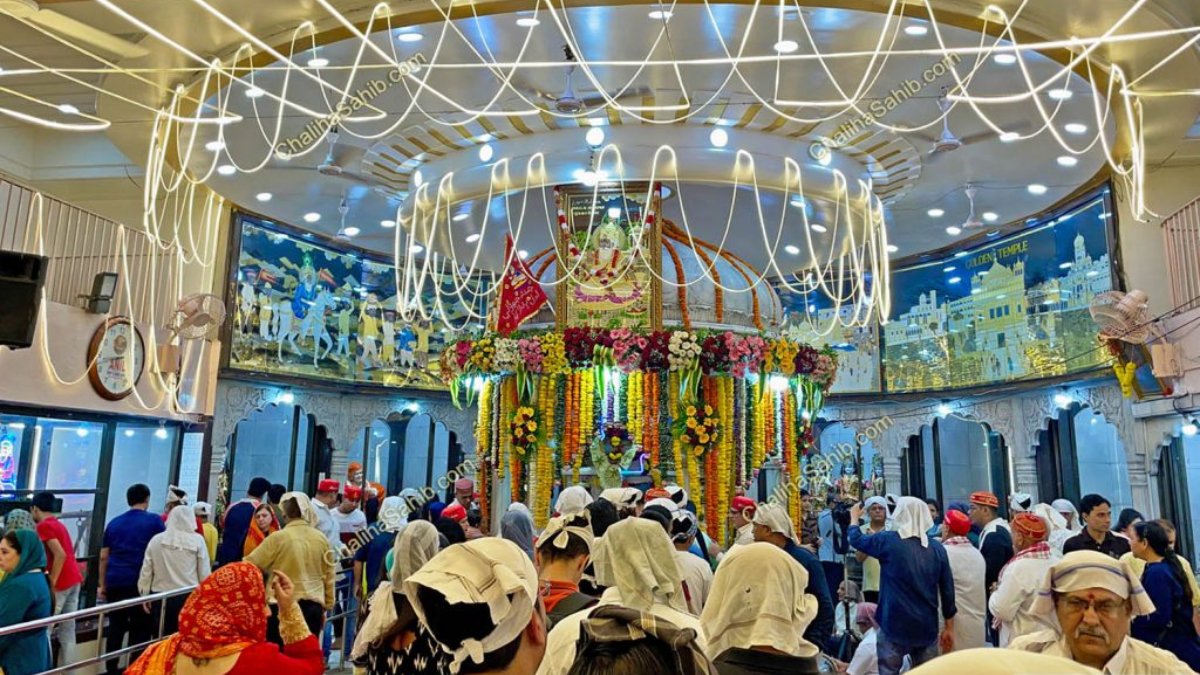Mumbai: Sindhi speakers across the world are celebrating ‘Chaliha Sahib’, a 40-day-long period of austerity and prayers dedicated to their foremost deity, Bhagwan Jhulelal Saeen, the god of water.
While prayers take place across Jhulelal temples in the city, the centre of the festival is the Puj Chaliha Sahib Jhulelal Mandir in Sector 5 of Ulhasnagar which enshrines the Akhand Jyot, a flame brought by refugees who fled Sindh after the partition of the country in 1947.
The period coincides with the Hindu month of Sawan or Shravan which will be observed between July 22 and August 19. The month is associated with the mythical Samudra Manthan, or churning of the ocean, when a competition between the deities and demons to find amrit or elixir of immortality, created chaos.
Devotees at the Puj Chaliha Sahib temple in Ulhasnagar
While Sindhis in Mumbai observe the festival during this period, the Ulhasnagar temple, which sets the date after the sighting of the moon, began the celebrations on July 31 and will end on September 10. Lord Jhulelal is also called Varun Dev and the Sindhi Ishtdev or favourite deity.
Prakash Gvalani, a resident of Lokhandwala, Andheri, said that the faithful eat satvik food that does not include meat, fish, poultry, or vegetables like onion and spices like garlic. “Those who are very spiritual do not cut their hair, shave, or use leather. They sleep on the floor. They eat only once, usually fruits in the evening,” said Gvalani.
They observe celibacy and temperance in behaviour. Some forgo perfumes and makeup to focus on prayers and spirituality during the period. Devotees offer akho, a mix of raw rice, cardamom, turmeric, and sugar as an offering to the water deity. While the Ulhasnagar temple has a separate pond for the ritual, communities in other areas visit any water body like a lake, river, or well.
Gvalani said that residents of Lokhandwala and the western suburbs do the ritual near the sea. Devotees who follow the 40-day observance tie a sacred thread called ‘saggro’ on their wrist as a mark of commitment. They keep Behrana Sahib, a display of articles like fruits, candy, and akho that symbolises Lord Jhulelal.
Bharatkumar Jumb, a resident of Ulhasnagar and a singer of devotional songs dedicated to Jhulelal, said that the sacred flame at the Puj Chaliha Sahib temple has been taken to newer shrines nationwide. “The refugees installed the flame from Sindh in a makeshift shrine made of bamboo and cloth. They built a large temple later. When refugees set up temples in other parts of India they took lamps lit from this flame,” said Jumb.




